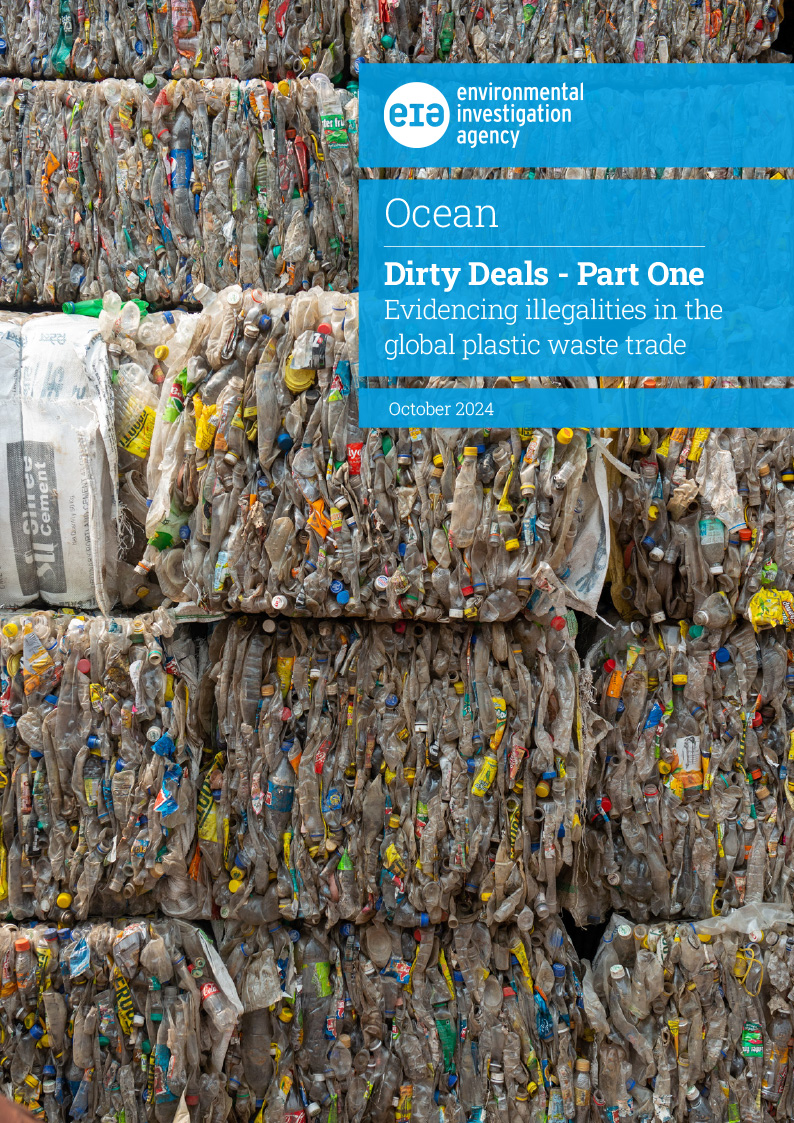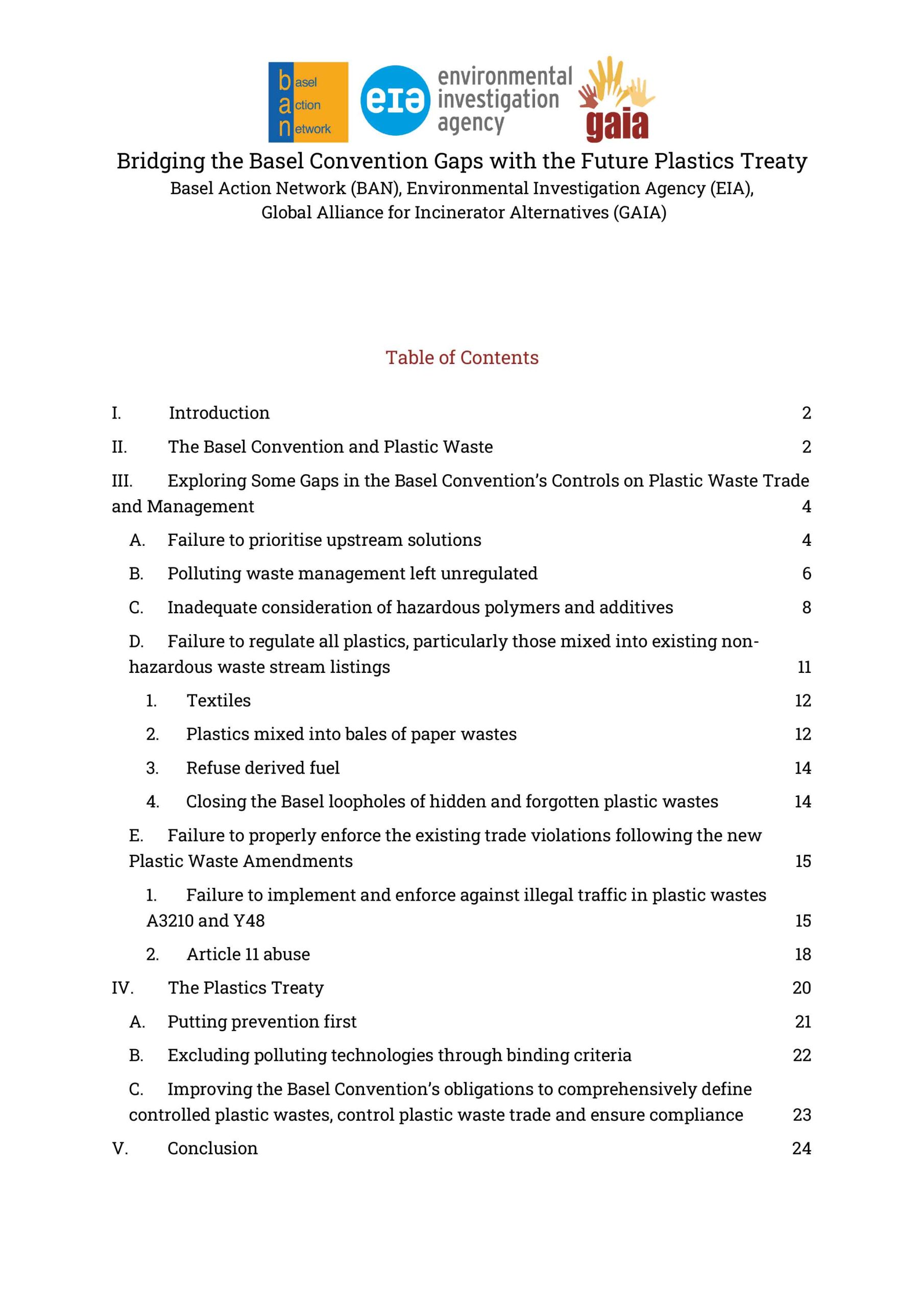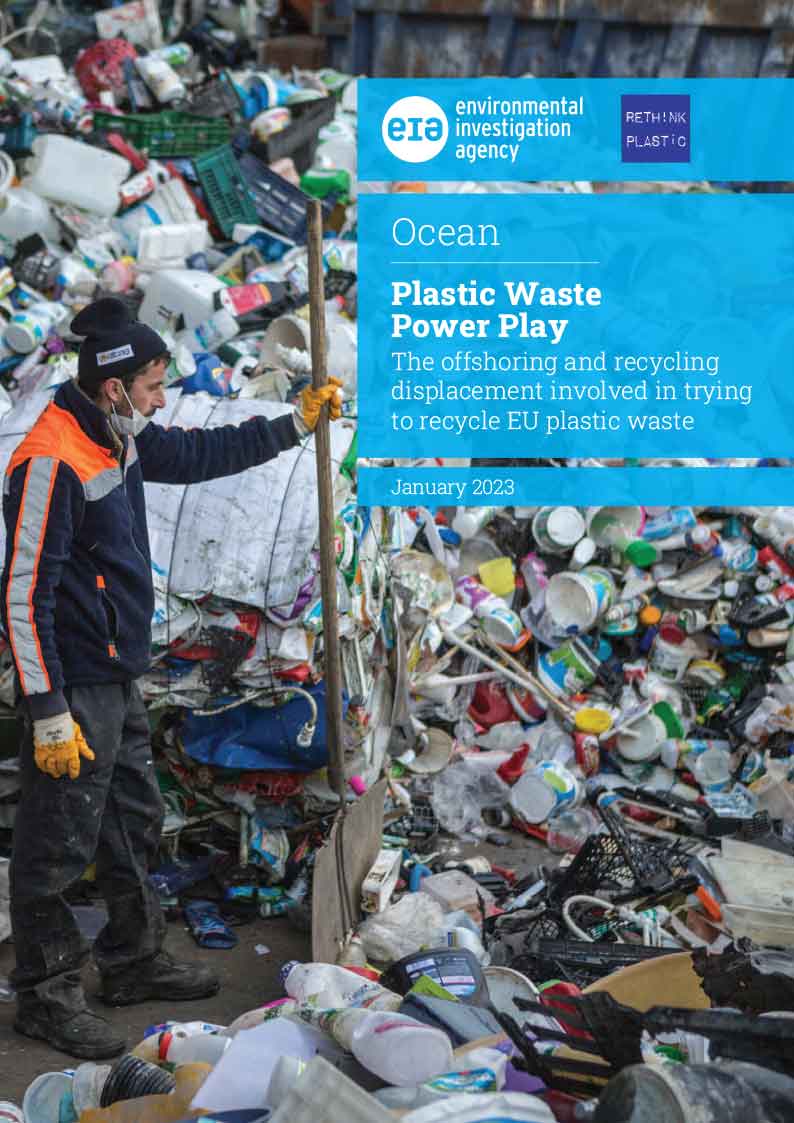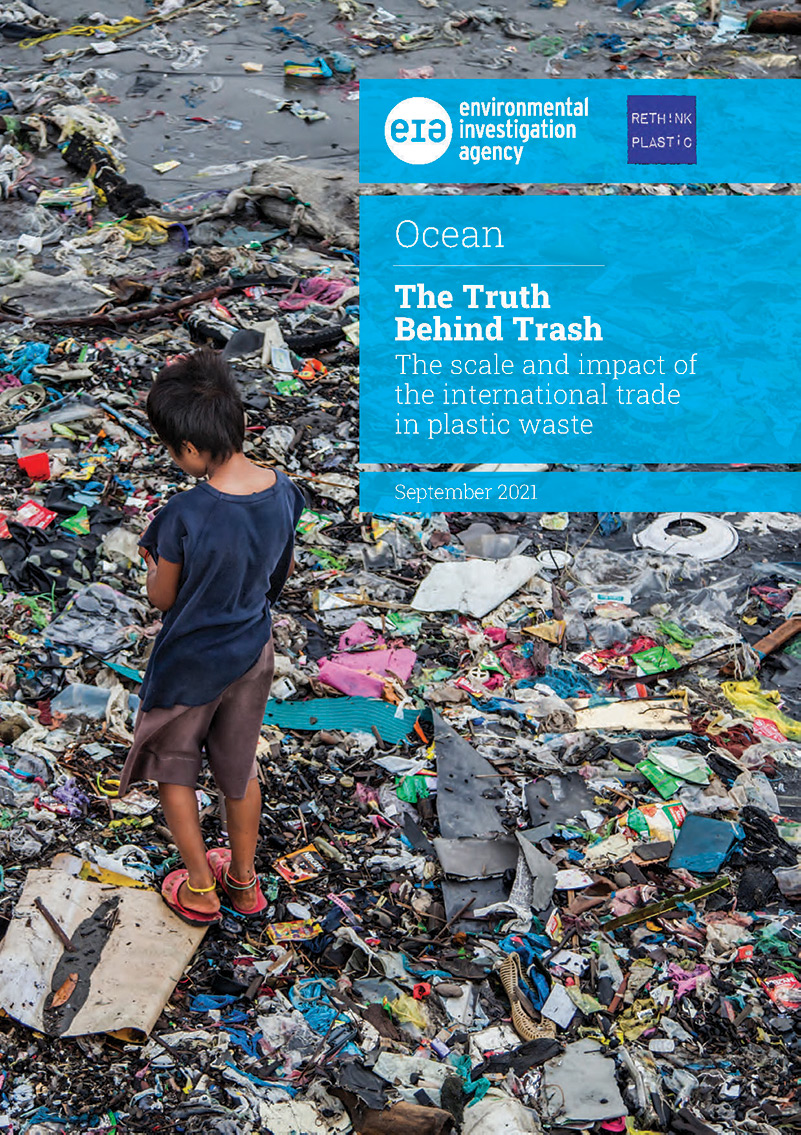Unsustainable production and consumption of plastic has been supported by exporting waste to countries with lower energy and labour costs, with devastating impacts on ecosystems, workers, and communities around the world. Illegal exports and dumpsites are now widespread, curbing environmental health, social wellbeing, and economic development. Thousands of lives are cut short though appalling sickness caused by informal burning, with exploitative working conditions and even child labour now all too familiar.
The aim of our campaign on the plastic waste trade is simple – to severely restrict and phase down the international trade in scrap plastic, ensuring that it is consistently managed in an environmentally and socially responsible manner. To enact this vision, we continue to advocate for tighter controls on the global trade in plastic waste at the Basel Convention. At the regional level, we are advocating for revisions to the European Union’s Waste Shipment Regulation that would ban plastic-waste exports to non-EU countries and introduce stringent measures for intra-EU trade.
EIA’s latest investigation reveals how criminals exploit regulatory gaps and legal loopholes in the global plastic waste trade, including a new scam involving the UK’s Extended Producer Responsibility scheme and discarded wheelie bins. Despite law enforcement efforts, this illegal trade continues to cause severe harm to human health and the environment.
The global plastic waste trade fuels organized crime, human rights violations, and environmental destruction, with millions of tonnes of waste dumped in countries ill-equipped to manage it. EIA’s latest report exposes how misdeclared plastic, murky supply chains, and weak enforcement allow illegal operations to thrive, despite international regulations like the Basel Convention.
A year-long investigation by Everyday Plastic and EIA found that 70% of soft plastic waste collected through UK supermarket take-back schemes was burned, not recycled, with much of it exported abroad, primarily to Türkiye. Urgent action is needed, including binding plastic reduction targets and a ban on UK plastic waste exports, to address misleading recycling claims and create real solutions.
New international regulations under the Basel Convention aim to address plastic waste management but fall short of fully protecting workers, communities, and ecosystems, particularly in developing countries overwhelmed by waste they cannot manage. This paper, co-authored with BAN and GAIA, urges the Plastics Treaty Intergovernmental Negotiating Committee to close critical legal and enforcement gaps within and beyond the Basel Convention’s mandate to combat the global plastic pollution crisis.
EU plastic waste exports are taking up limited plastic waste recycling capacity in recipient countries. The vast majority of plastic has never been recycled and exporting plastic waste from high-income, high-consuming countries helps perpetuate the status quo, rather than focusing on the reduction of plastic consumption.
The global trade in plastic waste has mirrored the growth in global plastic production, allowing high income, high-consuming countries to avoid the direct social and environmental impacts of their plastic problem and driving the ever-expanding production and consumption of virgin (new) plastics. EIA’s report – ‘The Truth Behind Trash’ – pulls together and analyses available trade data and other intelligence to give one of the most comprehensive pictures to date of the world’s mounting problem of trading plastic waste.
Waste Shipment Regulation
The primary legislation the oversees the trade in plastic waste in and out of the European Union is the Waste Shipment Regulation (WSR). It is currently undergoing review, and this comes at a critical moment in the international policy landscape on plastic waste.
To deliver on its environmental commitments, the EU needs to amend the WSR across a wide range of criteria. We are directly engaging in the review process to advocate for several important revisions to address plastic-waste shipments destined for both non-EU countries and EU-countries alike.
As the wealthiest family of nations in the world, the EU should not be exporting its waste outside of its borders; they have a responsibility to instigate an outright ban on plastic waste exports to non-EU countries. Moreover, as there is a risk that plastic will continue to be exported to places within the EU that do not have the infrastructure to appropriately manage it, there is also a need for measures within the EU. We are advocating for certification schemes for accredited waste processors and exporters, transparency, traceability, stringent enforcement, data reporting and national export reduction plans. It is only through a combination of these measures that plastic waste will consistently be managed in an environmentally and socially responsible manner, and the EU will deliver on its commitments.
You can see more detailed information on our initial policy asks to the European Commission.
Basel Convention
The Basel Convention on the Control of Transboundary Movements of Hazardous Wastes and Their Disposal is a global treaty that was designed to restrict the movements of hazardous waste between nations. In May 2019, amendments were adopted which mean that, as of January 2021, plastic waste that is difficult-to-recycle will need to be clearly consented before being imported into receiving countries. While these amendments are an important step in the right direction, they are by no means perfect. They will still allow for Global North countries to dump difficult-to-recycle plastic waste in the Global South, where there is often not the infrastructure and capacity to appropriately manage it.
Through the scope of the convention, we are working to ensure proper implementation of the Basel plastic amendments, including by tracking plastic-waste flows from between countries and identifying hot spots for improper disposal, investigating and exposing practices, pathways and syndicates for the illegal trade in plastic waste, and promoting the improvement of compliance and enforcement.
We are also advocating for a strengthening of the amendments by promoting the elimination of the many exceptions to the new rules and justifying additional action in light—or in the absence—of a new global treaty on plastic pollution.






